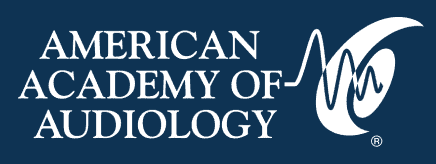Professional certification programs are designed to recognize practitioners who meet established education and experience requirements, and knowledge, skills, or competencies in their profession. Board Certification is granted once a candidate has demonstrated eligibility and passed an assessment of previously acquired knowledge, skills, and competencies.
Why Do I Need Another Certification?
While certification is voluntary, there are many benefits to becoming certified.
Earning your certification will…
- Grant you more credibility as an audiologist and set you apart from other audiologists.
- Serve as an impartial third-party endorsement of your knowledge and experience.
- Improve your career opportunities and advancement.
- Give you the “edge” when being considered for a promotion or other career opportunities.
- Prepare you for greater on-the-job responsibilities.
- Be a clear indicator of your willingness to invest in your own professional development.
- Offer you greater recognition from peers.
- Demonstrate your commitment to professional ethics education.
Getting certified demonstrates a commitment to excellence through lifelong learning and furthers diagnosis, treatment, and management of patients.
Is There a Difference Between Certification and Licensure?
Certification is generally voluntary and is not required to practice a profession. Rather, it is a self-governing standard that serves to inform consumers, peers, and other health-care professionals of the scope of practice and training of the certification. Loss of certification in audiology does not prohibit the practice of the profession, so long as licensure is maintained.
Licensure represents a government process by which a state or federal agency grants an individual permission to practice a profession and constitutes the legal right to practice that profession within the state. It is generally mandatory and must be renewed periodically. Licensure is an important form of consumer protection in that loss of an audiology license prohibits an individual from practicing audiology within the state or federal agency.
What Certifications Does the American Board of Audiology® Offer?
ABA offers four voluntary certification programs that showcase an audiologist’s expertise and experience and commitment to continual professional development.
- American Board of Audiology® Certified (ABAC)
- Vestibular Audiology Specialty Certification® (VASC)
- Pediatric Audiology Speciality Certification® (PASC)
- Cochlear Implant Speciality Certification® (CISC)
Audiologists who hold the ABA Certified credential have demonstrated their education, experience, and a commitment to professional standards and ethical practices.
Audiologists who are Board Certified in Vestibular Audiology®, Board Certified in Pediatric Audiology®, and/or are Board Certified in Cochlear Implants® have passed a rigorous exam testing their knowledge and skills, hold master’s and/or doctoral degrees in audiology, and have several years of work experience.
ABA’s certifications are developed and administered by ABA-certified audiologists, who help us maintain the highest levels of understanding of the needs of today’s audiologists.
Does the American Board of Audiology® Offer Certificates?
Assessment-based certificate programs build capacity and recognition of a specialty area of practice or a set of skills. They provide instruction and training (non-degree granting) and assess mastery of the intended learning outcomes. ABA currently offers Certificate Holder-Audiology Preceptor® (CH-AP) and Certificate Holder-Tinnitus Management® (CH-TM).
Why Choose the American Board of Audiology® for Your Certification Journey?
You may have seen or heard of other audiology credentials. What makes ABA certifications special?
ABA certifications are developed by practitioners for practitioners and represent a diverse audiology audience. ABA certifications can give you an edge with colleagues and patients.
While the ABA updates its policies and procedures as needed on an ongoing basis, the ABA has designated a standing meeting time annually to review all policies and procedures, candidate handbooks and website content.
Start Your Certification Journey Here
Starting your certification journey is one click away. Welcome to the ABA community!
